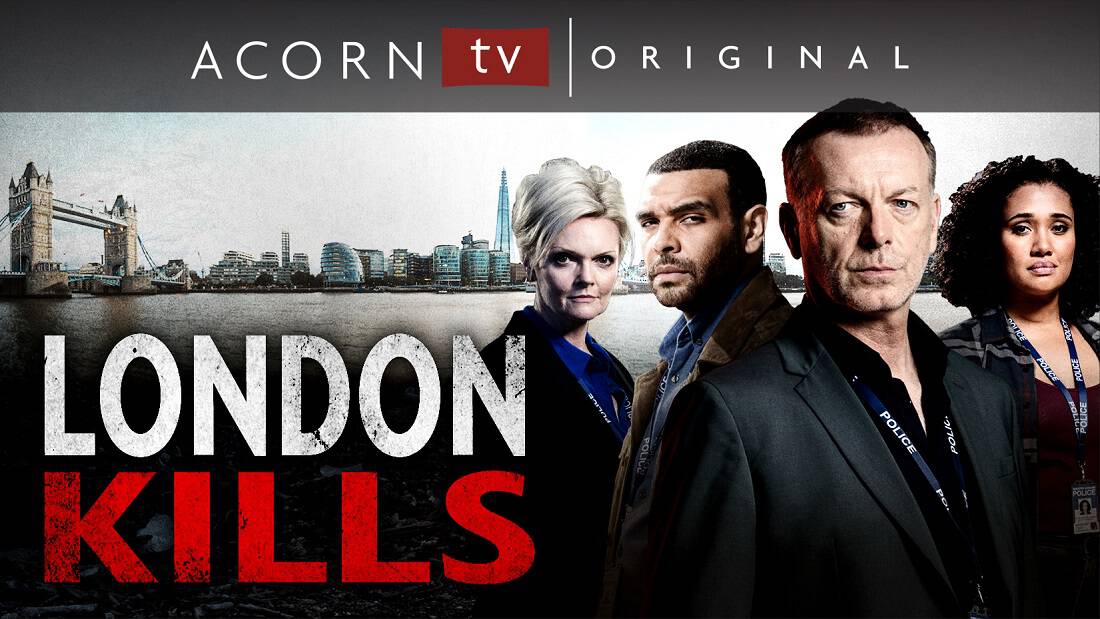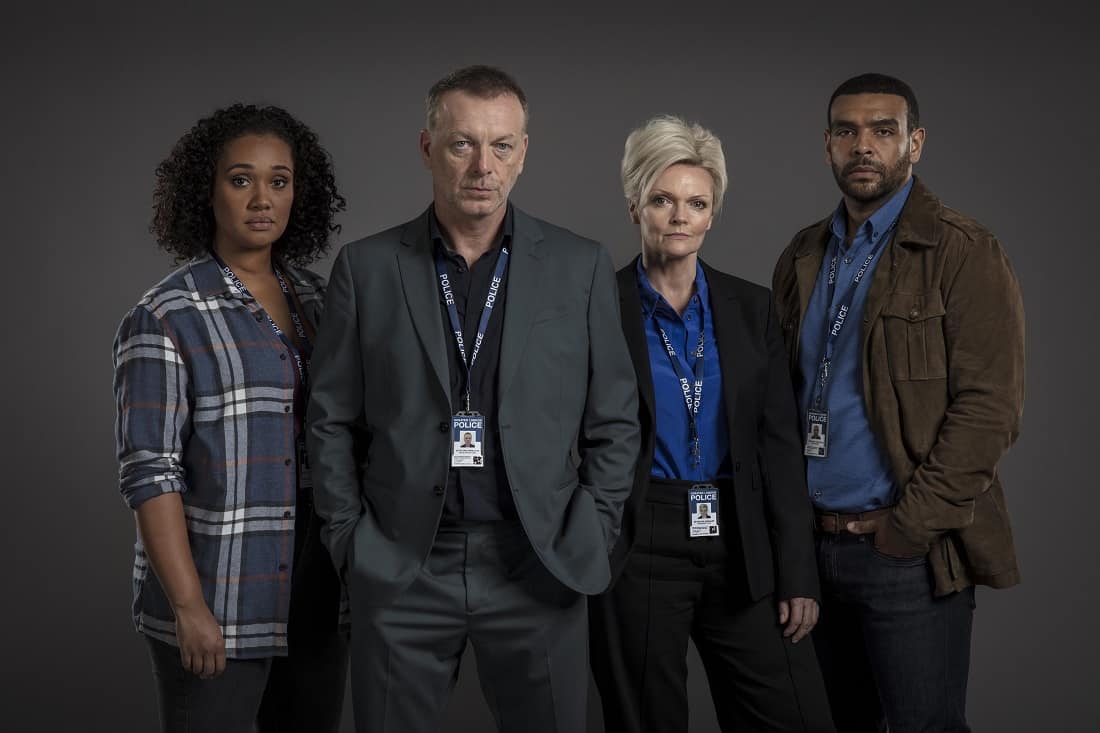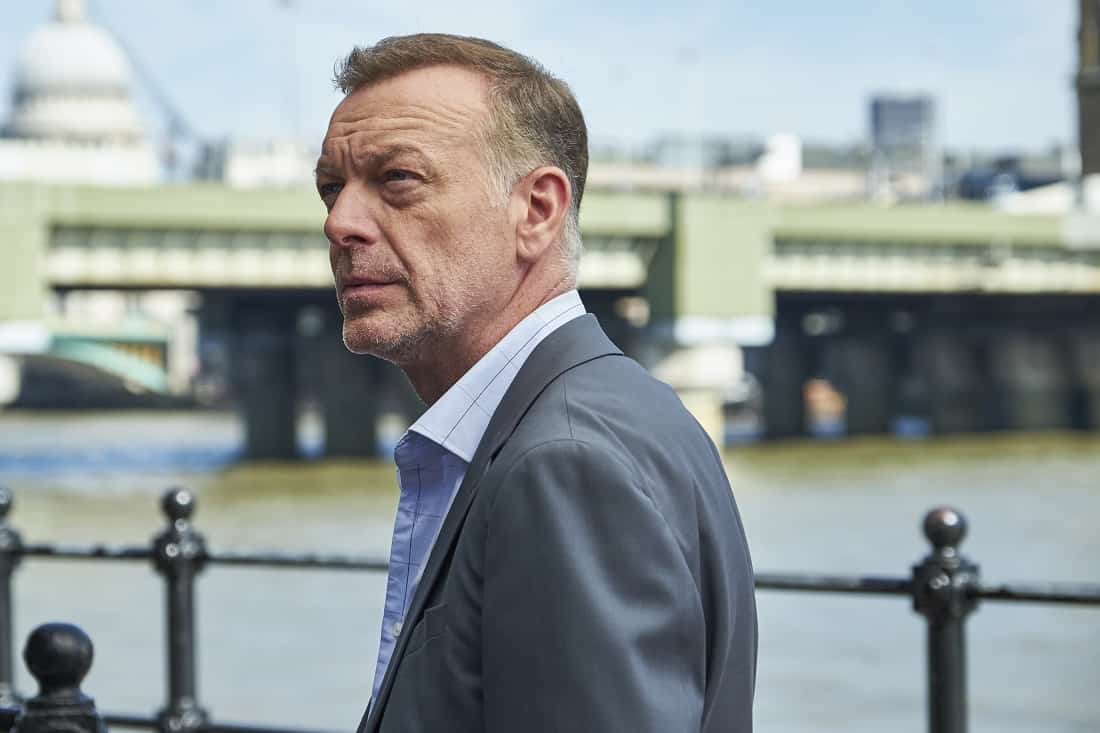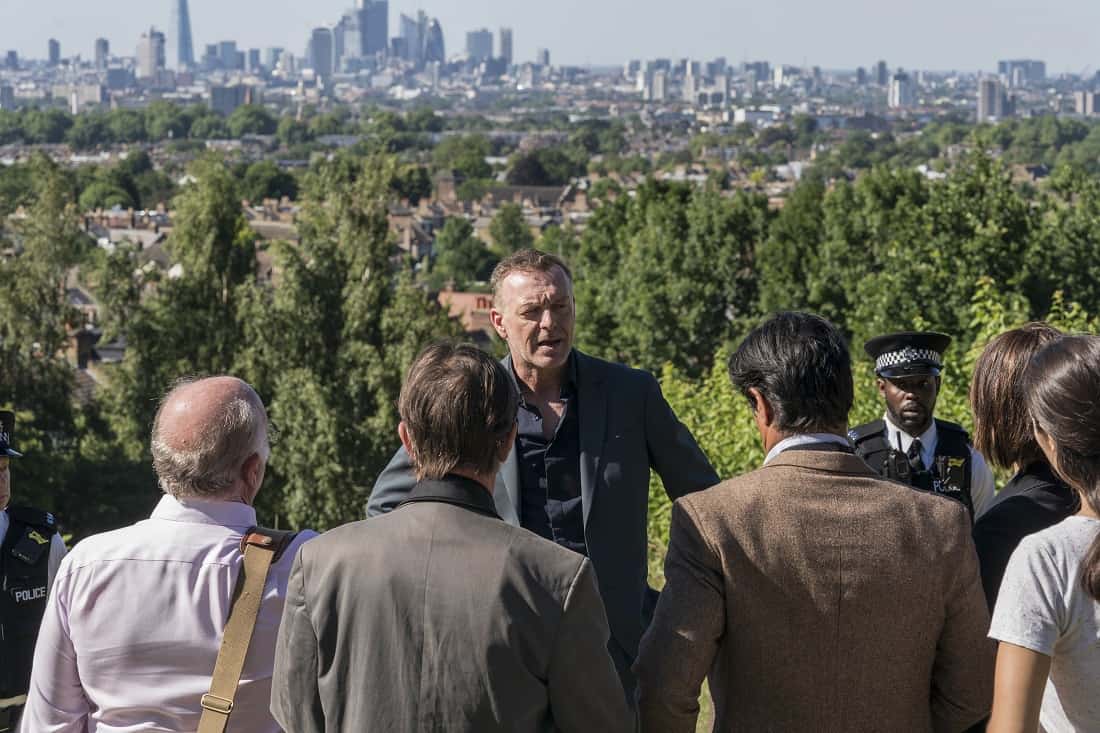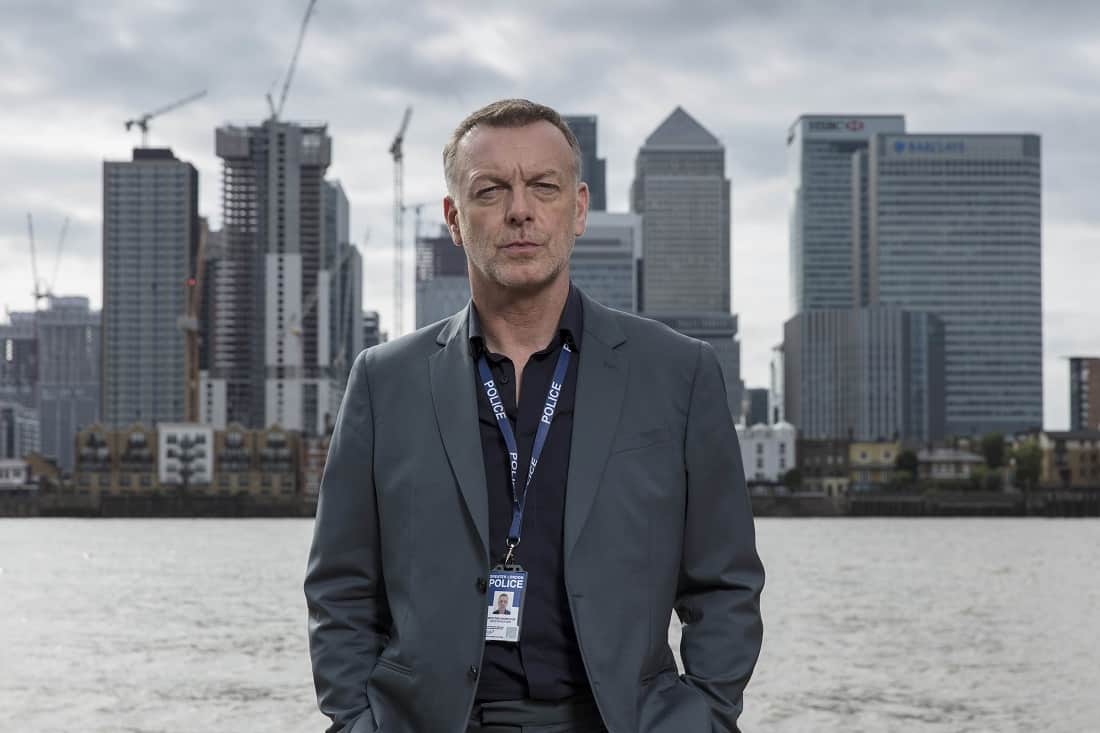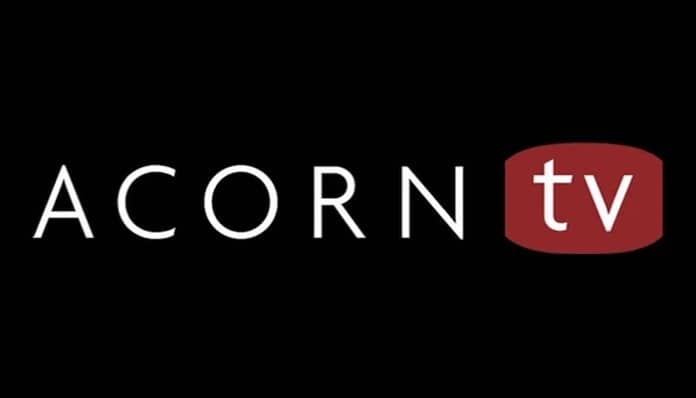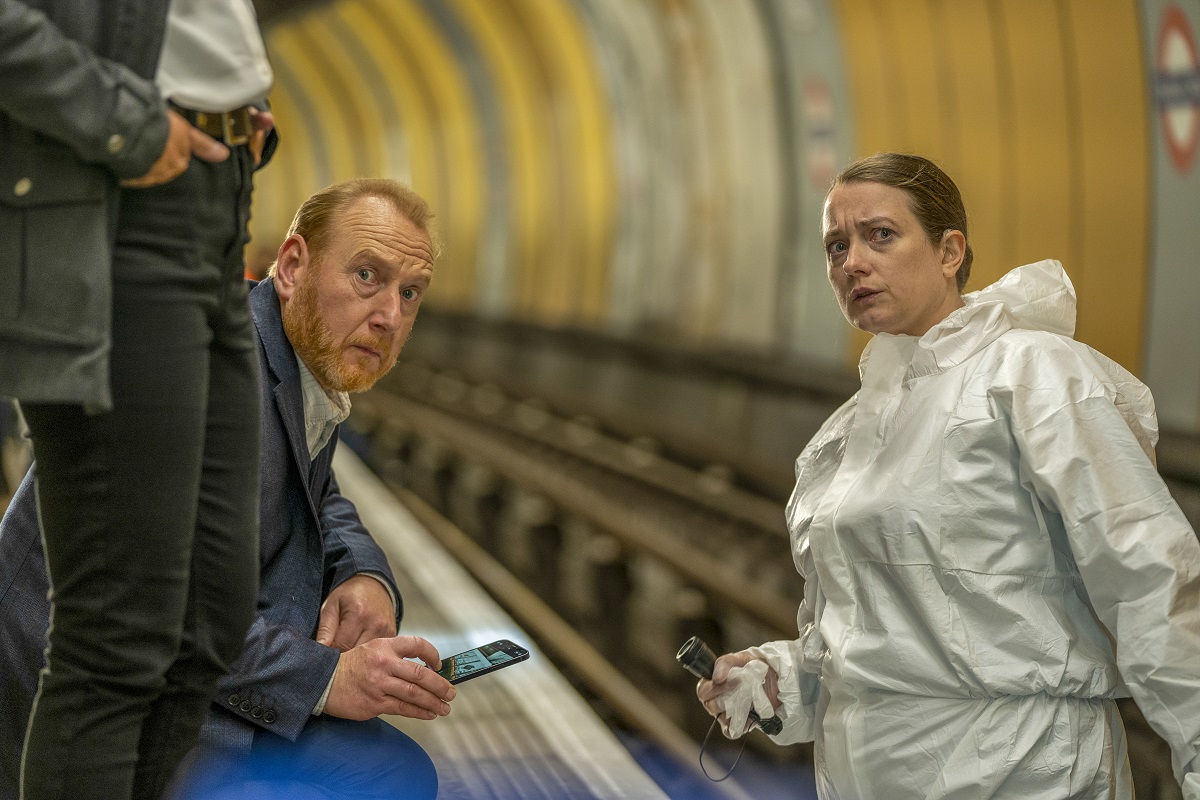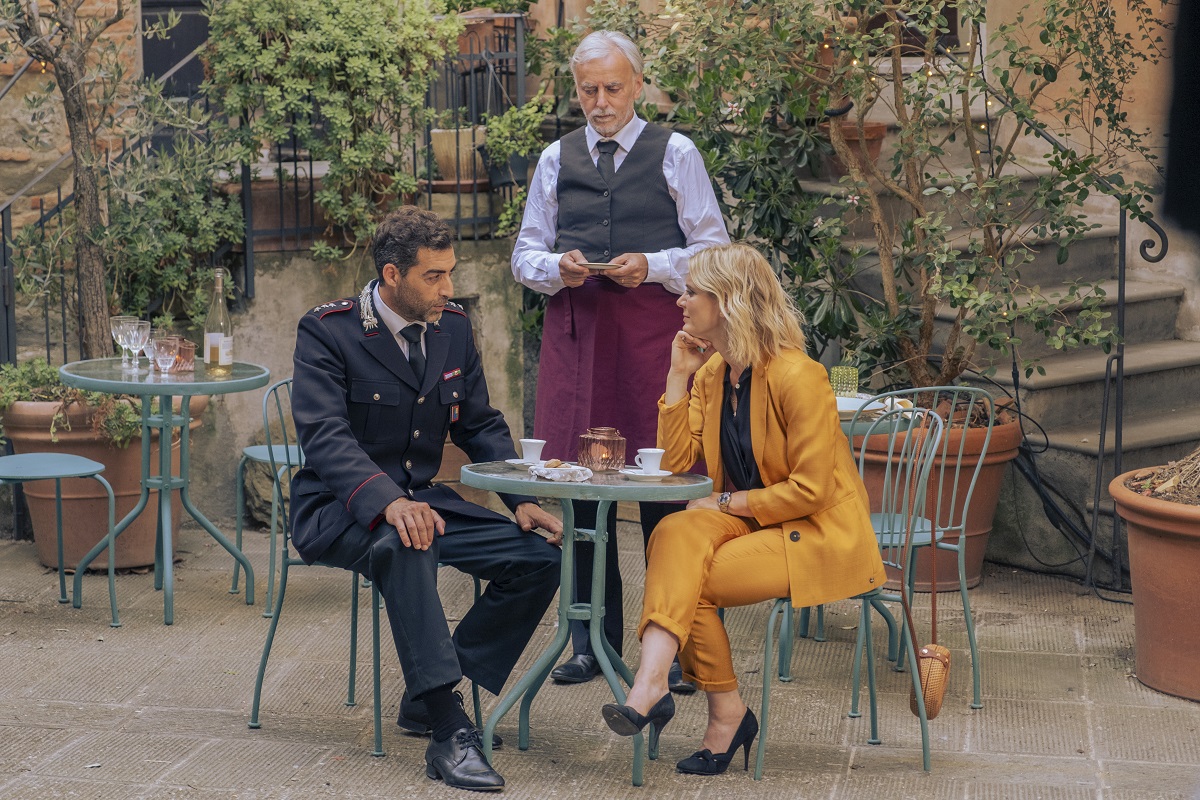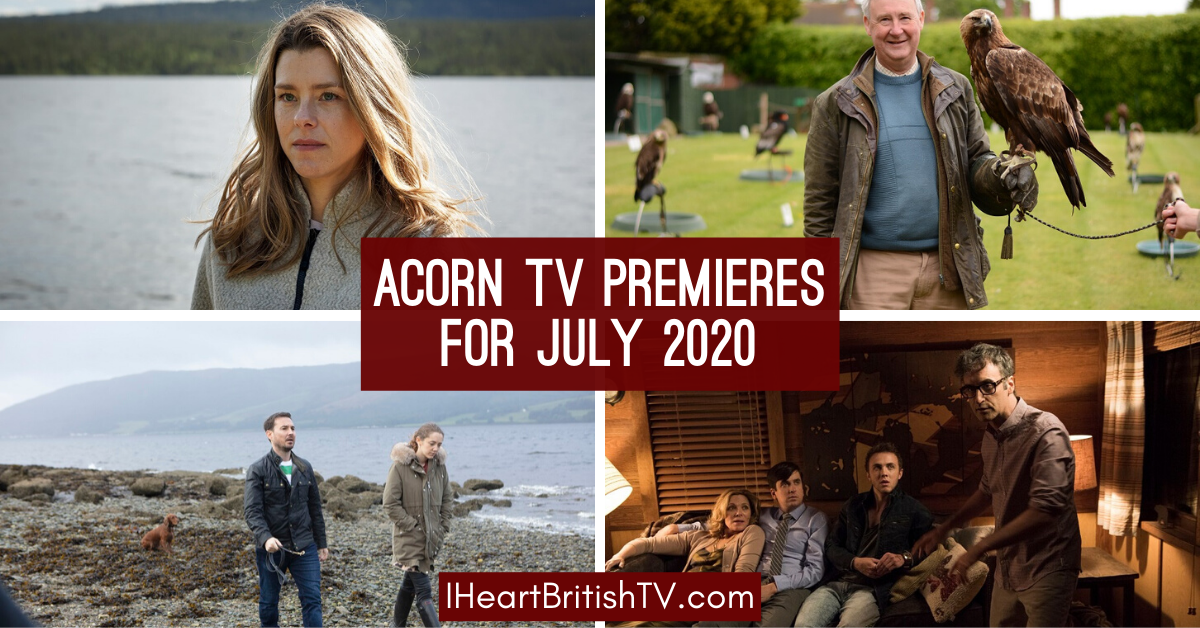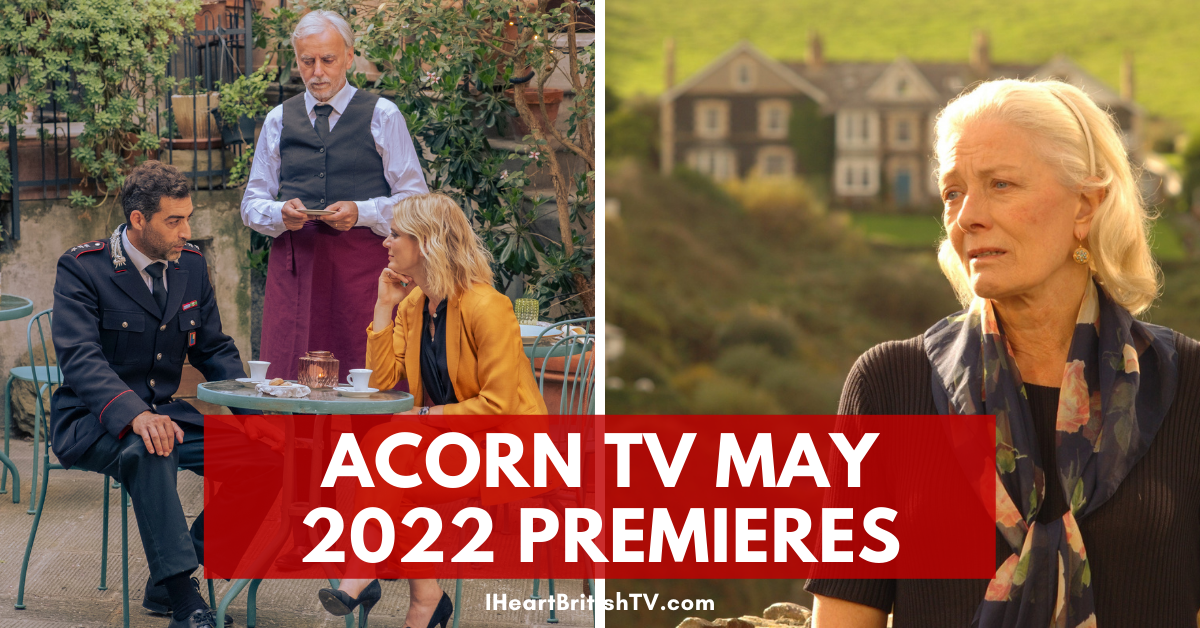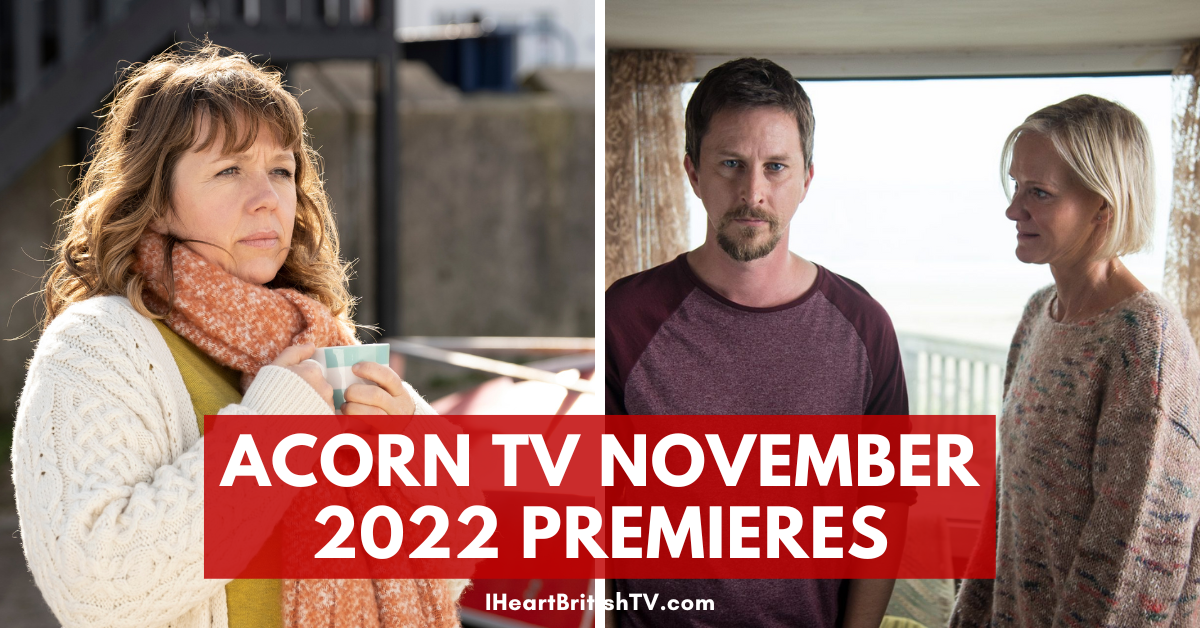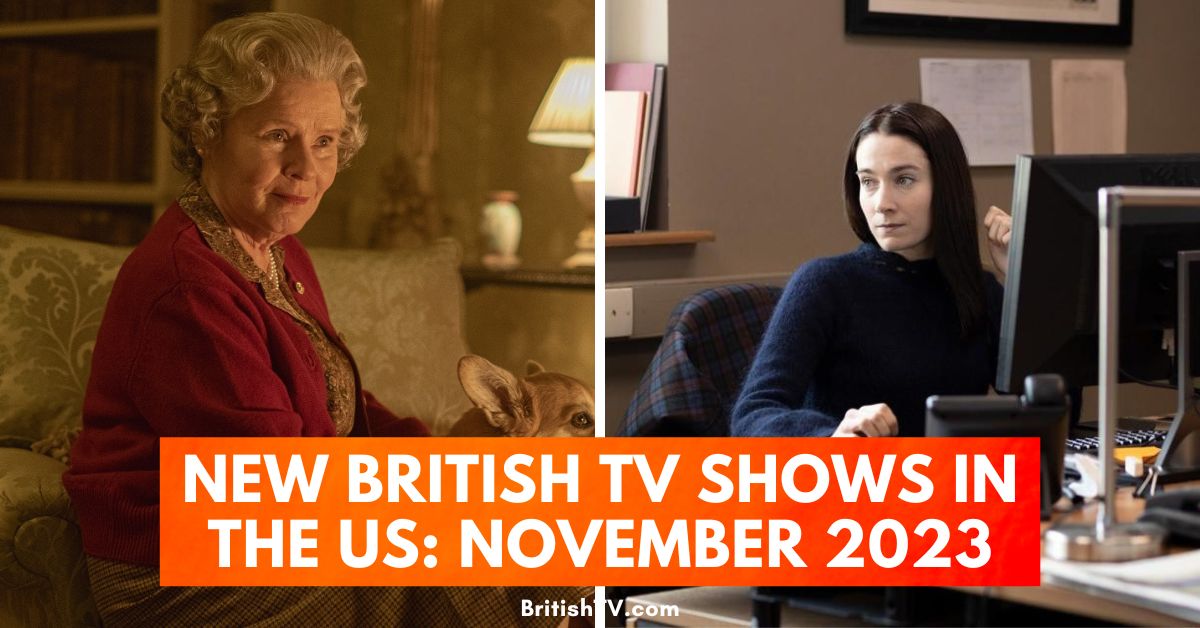Interview with Hugo Speer of Acorn TV Original London Kills
In some cases, we earn commissions from affiliate links in our posts.
Last Updated on March 4, 2019 by Stefanie Hutson
On February 25th, Acorn TV premiered their latest Acorn TV original – a straight to series commission called London Kills. In case you haven't yet checked it out, it's a gritty urban drama best suited to British TV fans who enjoy shows like Luther, Happy Valley, The Fall, and Marcella (which also features our interviewee, Hugo Speer).
Hugo Speer (The Full Monty, Marcella, Britannia) is the series lead, and he's flanked with talent on all sides in the form of his teammates. Sharon Small plays DS Vivienne Cole, Bailey Patrick plays DC Rob Brady, and Tori Allen-Martin rounds out the team as TDC Billie Fitzgerald.
Last Friday, we got a chance to catch up with Mr. Speer and get his take on the new series. He also gave us some interesting insights into his own life – whether he'd prefer to be a detective in modern London or a 1950s English village, and a very uncommon hobby he enjoys in his limited free time.
Interested in watching London Kills? You can sign up for a free one-week trial to get you started with Acorn TV, and that should be more than enough time to binge watch London Kills and get a sense of the other quality content they have on offer. I've personally been an Acorn TV subscriber for at least 6-7 years, and I highly recommend it for any and all fans of British TV.
Editor's Note: As always, please keep in mind that this is the transcript of a phone interview, and every now and then, it can be hard to make out something in the recording. If something sounds a bit funny, blame that on us and/or technology, not Mr. Speer – he's a thoughtful and well-spoken actor (as so many British actors seem to be)!
Interview with Hugo Speer of London Kills
First off, can you tell us a little about London Kills?
Yes, this…we’ve shot two five-part series, and it’s set in London. It’s a murder investigation team consisting of four people, and we have, we kind of shot it in sort of documentary style – three hand-held cameras, using as much natural light as possible, and the dialogue is free for a little bit of improv that stuff like that, so everything feels kind of gritty and real in pacing.
I think the idea of making it, the reason we made it is because there’s always been a large appetite in the States and in Europe for British procedural police dramas, and of late, I think they’ve been getting very high-concept and sort of convoluted and quite complicated so I think they’ve made this show so we can kind of return to basics and have a good, honest British cop show.
So what’s your character like?
So, Detective Inspector David Bradford, he’s a good cop, he’s an honest cop, as honest as he can be, in that business. He’s a bit long in the tooth, he’s been doing it for a long time. And obviously, over the years, you get a bit, a little bit beaten down, a little bit jaded, but he still fundamentally believes in fighting for justice, fighting for good over evil, and all those things – keep the streets safe and keep innocent people safe while getting the bad guys off the street.
So in that sense, he’s a regular guy. He’s had, over the past, he’s proved himself to be quite human and fallible. There’s been infidelity, he’s had affairs in the past and that’s created marital problems and difficulties, but they’ve kind of got through it. But now we’ve hit a point where, in the first episode, his wife has been missing for quite a long time.
David’s been on compassionate leave, but that’s really not working because he’s just at home feeling absolutely impotent and useless, so he’s pretty much demanded to come back to work and now at least he can feel he’s doing something about it. At least he can pressurize the people from the missing persons department to keep on their back, and keep at them to keep working.
So he’s in a tricky place. He’s gotta do his job to help solve these murders, which is his raison d'etre, what he does, but all of this with the backdrop of knowing that his wife is missing. As the first series develops, we discover that, you know, there are traces of his wife having been at various murder scenes, crime scenes, which obviously creates, for the audience, a lot of intrigue, but for David it creates sort of panic and confusion and frustration.
Understandable. So how did you personally come to get involved with London Kills?
So I was asked to have a meeting with Paul, Paul Marquess, who’s the creator and writer, and we met and we talked and clearly, whatever I did or said was good, because they offered me the job straightaway. So it was just sort of kismet, really. They found their man and I was more than happy to do this job, as I’ve said to other people before, I had been previous to this, I’d been doing a regular radio show on BBC Radio 4 called Stone, and I was playing DCI John Stone, and he’s a detective on a murder investigation team – pretty much exactly the same, except for (a) it was on radio and (b) it was set in Manchester, in the northwest of England.
And I had been, after about sort of the 8th year of this, I’d been pitching it or trying to get it pitched for TV. And it was being met with a sort of varying degree of enthusiasm, but it wasn’t looking like it was going to happen, and then London Kills came along, DCI Bradford came along and it felt absolutely right, like this was the sort of cosmic order and that I’ve been doing and this was the answer. This was *inaudible* for TV, with the added bonus that it was set in London, which is where I live, so I wouldn’t have to travel up north. So yeah, it all worked out very nicely, really.
Fantastic. Did you learn or do anything that surprised you as you were filming the series?
**Silence** Sorry, my eldest daughter’s just come and waved at me, so ask me that again, please?
Editor’s Note: We left this bit in because we thought it was so delightful that Mr. Speer handled this so gracefully, barely missing a beat in the interview, and without a hint of aggravation at his young daughter.
I think just the nature of the way we shot it was new to me, I've never shot that frenetically before, having to dispense with writing setups and all of that. We were shooting, 11-12, sometimes 13 pages/day-
Wow!
I know, it was incredibly quick, an episode a week, and I discovered that I really enjoyed working that way, knowing that I’d done my homework, and knowing what was coming up, and just, effectively starting filming at 8 and virtually nonstop all the way through.
No sitting around, no time to sit around, we’d shoot the wide with 3 hand-held cameras and then do maybe 2 takes, and then it’s like great, let’s come in and then we’d come in and we’d do the closeups and work out that, shoot that a couple of times and then we’d move on to the next scene and that was like, “Whoa, okay!”
I was also, not at the same time, but I’d get a couple of days on another show that I’m doing called Brittania and that’s for Sky and that’s a big behemoth of a thing, and on that day I’d arrive and then they’d drive me onto set and I’d rehearse and they’d drag me off set and then we’d be sitting around for 2-3 hours while the lighting and all that, then they’d drive me back onto set and we’d maybe rehearse something.
So, we’d end up shooting maybe a page and a half or two pages. So, you know, I was doing the complete antithesis of that at the same time. Weird, seeing those juxtaposed to each other.
I can imagine! So a lot of our readers are in the US, of course, and they’re fascinated by the sheer variety of different British accents from region to region for such a small country. Did you use your natural accent in London Kills, or did you have to change that to fit the role?
Erm, I used my natural accent. So I’m actually from the north of England, but I’ve been in the south for so long that I only, I sort of retain a couple of northern vowels. So I sound fairly standard English, I think, with I guess a sort of northern twang to it. Obviously, Sharon, who plays Vivian, she’s from Glasgow and she’s kept her accent. Bailey, he’s very London-born. He was born and bred around Bermondsey, so he’s got that.
So I think we’ve got a nice mixture and, but yeah, I mean I’m constantly fascinated by the massive diversity of accents in this country, and how literally, between cities and between only just a few miles, you get this huge difference. That never ceases to amaze me.
And obviously when we did The Full Monty, that was quite northern, obviously, Sheffield – to the degree that they had to print a glossary for the US audiences so they knew what the words meant.
Wow!
Something like, “I’m going to *inaudible* bog,” which means, “I’m just going to the blooming toilet,” like that. It wouldn’t mean anything to a US audience, that’s why we had a glossary.
Editor’s Note: We’re assuming he meant the general US audience, not British TV and film connoisseurs like those of us who hang around this place. ?
Good storytelling, that’s the universal language that seems to transcend all these cultural barriers.
Definitely. So a lot of our readers are going to remember you from your time on Father Brown.
Oh good, yes!
Now that you’ve been an inspector in a couple of different time periods, if you were actually a detective, which one do you think you’d prefer?
Oh, I would much rather be back in the old days. That’s when you had, that’s when crimes were about, generally, acquisition. So you had theft, or burglary, or whatever…and/or violence, maybe, for whatever reason. But, a copper back in those days, a policeman in those days, they would know who the bad guys were, and it would be kind of like a sort of cat and mouse game of knowing, loosely, who it was and having to prove that they were guilty – but at least you knew where you were then.
And there were, resources, to be able to work. These days, certainly in this country, police are getting less and less money to work with, and it’s getting harder and harder – and there’s so much cybercrime and there’s so much, you know, internet trolling and hacking and all these weird things. So there’s a whole new breed of criminals that are virtually impossible to fathom.
And also, I think, there’s a general apathy at best, or a bad feeling towards the police, a malevolence towards the police these days, which kind of breeds a sense of resentment. I think most police these days, are sort of undervalued and underfunded, and they’re feeling pretty neglected and underappreciated.
I think that’s why they generally hanker after the old days where you knew where you were and policing was policing, and you were able to do it. So that was quite a lengthy answer to your question. But yes, I think if I had to be Bradford or Valentine (Speer’s character in Father Brown), I’d go Valentine.
Fascinating. So I was doing my research before this interview, I read your Wikipedia and it mentioned you have an interest in falconry, so I kind of perked up because I’ve done that, actually, a little bit, and I was just curious – how did you get interested in that?
Ever since, ‘cause I was born and brought up in Yorkshire, and obviously you get a lot closer to wildlife there, I’ve just naturally gravitated towards, first animals and birds, and I always loved birds, and I just find raptors the most beautiful and exquisite example of that, really.
I took an interest, I’ve never done as much as I’d like to, certainly I’m a busy boy with the old acting and being in London, you don’t get that many opportunities, but when I have, you know, there’s nothing quite like just holding a falcon or a kestrel or whatever on your hand, and just watching them – watching how alert, and how physically beautiful they are, and how graceful they are, and yeah – that’s, what can I say?
It’s something I’d like to do more of, when I get time I’d like to, you know, I’m living in North London, but if I get a chance to, I don’t know, maybe get a little country pad at some time, then I’d love to either keep birds or at least be able to regularly visit the falconry so I could practice it.
Yeah – do you have a favorite bird?
Erm, what do I like? I always loved the red kites because that was introduced back to where I was living, they had been persecuted for many years. Then when I moved back up to Yorkshire for a while, they reintroduced them and I used to be able to just sit out and watch them hover around my house, just on the thermals. They’d just fly around and around and around. They’re called kites, because they’ve obviously got these big beautiful fan tails and enormous wingspan, but they’re very beautiful.
And I think just, watching kestrels by the roadside as well. If you watch them, just hovering in one particular place, and waiting and watching them as they, just before they dive down to get their prey, it’s fascinating.
I completely agree. I know we’re getting to the end of our time, so I just wanted to ask one more question: What can we look forward to both from you, and from Series 2 of London Kills?
So – Series 2 of London Kills, we’re going to get more of the same, but there is a very good chance that we will actually solve the mystery of my wife’s disappearance.
And then from me, we’ve shot a second series of Britannia, which is due for transmission in the UK I think around September. I’m not sure whether that’s going to be in the States. And, what else am I doing? I’m about to do a third series of a show called Marcella, which is Anna Friel. It’s very dark…it’s written by a guy who does all the Swedish noir and stuff like that. And he set it in London. We’ve had two series of that and I’m about to do the third of that as well. I’m hoping it will be, if not on Acorn, it’ll be on something, a platform where audiences in the States can watch it.
Fantastic, I’m glad to hear you’re keeping busy.
Yes I am, and I’d like say I’ve got two little girls to look after as well, and they keep me very busy, so there’s not much time for my falconry at the moment.
No, I bet! Well I really appreciate you taking the time, and it’s been a great interview.
A pleasure, thank you so much.
Where to Watch London Kills
London Kills is an Acorn TV commission, so you'll need an Acorn TV subscription to watch it. You can sign up for a free one-week trial HERE, or perhaps check out the trailer below to get a better idea of what it's all about. There's a lot of other great stuff coming up in the next couple months on Acorn, including Manhunt with Martin Clunes, Queens of Mystery with Julie Graham, and Accused, with too many accomplished actors to name here.

